On this page, you can find related projects dealing with agriculture, climate change adaptation and mitigation measures. The aim is to share experiences, best practices, tools, and results and to enrich and provide proper orientation to Life ADA in an effective manner.
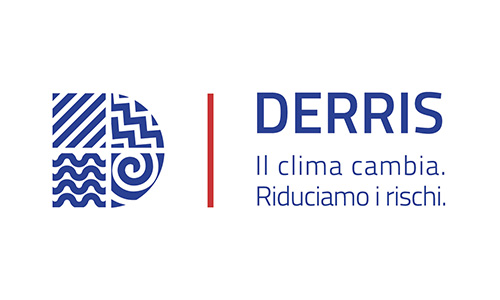
Coordinator: Unipol Gruppo S.p.A.
Partners: ANCI, CINEAS, City of Turin, Coordinamento Agende 21 Locali Italiane and UnipolSai
Duration: from September 2015 to September 2018
The Derris project offers a series of concrete answers, creating a bridge between the insurance world, public administration and companies.
The aim is to provide small and medium-sized enterprises with the necessary tools to reduce risks from floods, landslides, typhoons, heat waves or frost. To achieve this, it sets out to:
The overall goal of the LIFE AgriAdapt project is to demonstrate how three of the EU’s most important agricultural systems (livestock, temporary crops and permanent crops) could be more climate resilient by enforcing feasible and sustainable adaptation measures, which could also have broader and environmental benefits. The specific aims of the project are to:
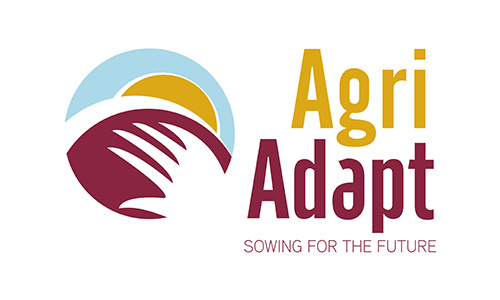
Coordinator: Bodensee-Stiftung – Internationale Stiftung fr Natur und Kultur
Partners: EESTI MAAULIKOOL / Estonian University of Life Sciences, Estonia Fundación Global Nature, Spagna SOLAGRO, Francia
Duration: from September 2016 to April 2020
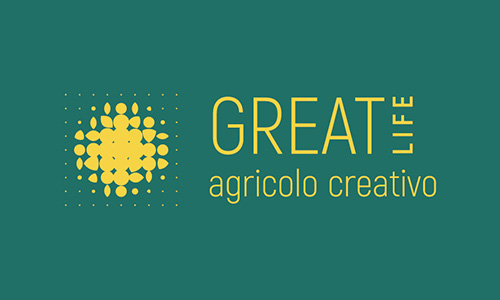
Coordinator: Alma Mater Studiorum – University of Bologna – Department of Sciences and Agrifood Technologies
Partners: Alce Nero S.p.a, Italy Municipality of Cento, Italy KILOWATT SOC. COOP., Italy LIFE CYCLE ENGINEERING srl, Italy
Duration: from October 2018 to March 2022
The goal of the Great Life project is to promote a model of sustainable production and consumption, aimed at contrasting the negative effects of climate change on farms in the Po Valley and throughout Northern Italy. On the one hand, the model suggests replacing crops with high water requirements and that are poorly adaptable to climate change, such as corn, with crops that are already suited to hot and dry climates, such as millet and sorghum. On the other hand, the model proposes the strengthening of demand for resilient and sustainable foodstuffs through the creation of a food community, made up of individuals who are mindful of their health and the planet.
Specifically, the GREAT LIFE project focuses on 3 strategic aims concerning:
The Pastoralp Life project (Pastures vulnerability and adaptation strategies to climate change impacts in the Alps – LIFE16 CCA/IT/000060) sets out the goal of reducing the impact of climate change on alpine pasture systems, increasing their resilience and reducing their vulnerability.
Specifically, the project aims to:
The final result will consist of a platform of tools (LIFE PASTORALP tool platform) to help operators adopt adaptation measures in the two parks involved (Gran Paradiso National Park and Parc National des Ecrins), in line with the objectives of the EU “Climate Change Adaptation Priority Area”. The strategies and tools developed as part of this project can be easily applied with good results in other pasture areas in the Western Alps.
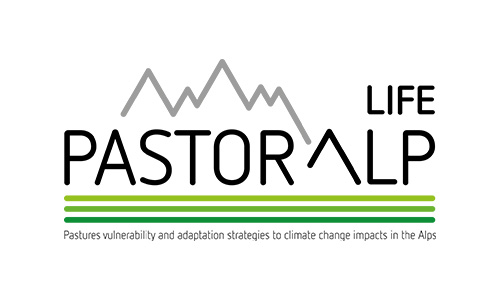
Coordinator: Department of Agricultural, Food, Environmental and Forest Sciences (DAGRI), University of Florence (UNIFI)
Partners: Agenzia Regionale Protezione Ambiente Valle d’Aosta (ARPA VDA), National Center for Scientific Research (CNRS), Institut Agricole Régional (IAR), Institut National de Recherche pour l’Agriculture l’Alimentation et l’Environment (INRAE), Parc National des Ecrins (PNE); Ente Parco Nazionale Gran Paradiso (PNGP)
Duration: from October 2017 to 30 March 2022
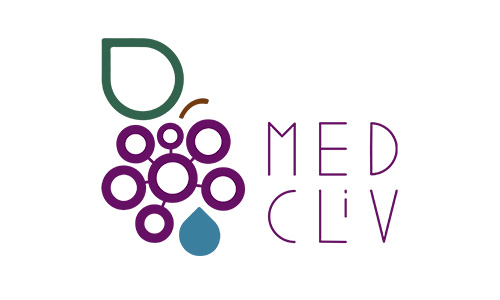
Coordinator: Edmund Mach Foundation
Partners: France, Italy, Spain, Portugal, Cyprus e Slovenia
Duration: from October 2021 to September 2022
The objective of the MEDCLIV project is to create national hubs in six Mediterranean countries (Cyprus, France, Italy, Portugal, Slovenia, Spain). These hubs will enable stakeholders in the wine sector to collaborate on climate change issues. The hubs share the same interdisciplinary approach and are aimed at involving local communities.
The wine sector is a significant economic and cultural driver of the Mediterranean area. In regions where vine cultivation is part of the agricultural landscape and the economic and social heritage, climate change can have a major impact on the production cycle as well as considerable repercussions on inhabitants. In light of this, adaptation and mitigation strategies must be planned.
The hubs aim to bring together the different figures in the grapevine and wine value chain (VWVC) in order to share know-how, ideas, solutions and perspectives on common problems, with the goal of:
The “LIFE AGRESTIC – Reduction of Agricultural Gases EmiSions Through Innovative Cropping systems” project, which is part of the broader climate change mitigation objective of the LIFE Program for the Environment and Climate Change 2014-2020 (funded by the Eu), will promote the adoption of innovative and efficient cropping systems, with a high potential for climate change mitigation, and will contribute to the dissemination of innovative visions and tools for a more efficient and climate-friendly agriculture.
“LIFE AGRESTIC” aims at promoting the adoption by European farmers of innovative and efficient cropping systems, based on the use of legumes and catch crops able to mitigate the effects of climate change. The project, lasting 4 and a half years, involves six partners: Horta, ART-ER, Isea, New Business Media, Scuola Superiore di Studi Universitari e di Perfezionamento Sant’Anna e Università Cattolica del Sacro Cuore di Piacenza.
LIFE AGRESTIC will take place in Italy (Emilia – Romagna, Tuscany and Puglia) and will focus on the inclusion of legumes and catch crops in the rotations of cereals and industrial crops (tomatoes and sunflowers), to reduce greenhouse gas emissions, increase carbon sequestration and the availability of organic nitrogen. It will also develop an innovative decision support tool (DSS) for efficient management of the entire crop system (multi-year rotations of different crops), rationalizing the use of external inputs (nitrogen fertilizers, pesticides, etc.) and non-renewable resources (soil and fuels) and increasing / maintaining yields, product quality and safety. The development of a prototype for automatic and continuous monitoring of greenhouse gas flows from the soil, a product label and schemes for the payment of Ecosystem Services is also planned.
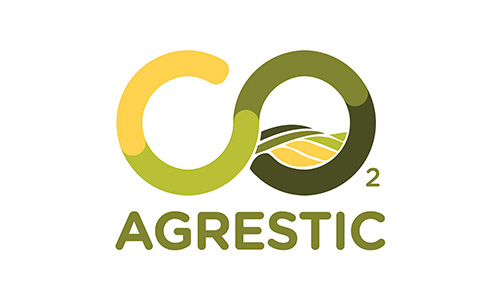
Coordinator: Horta srl
Partners: Università Cattolica del Sacro Cuore, ERVEST SpA, New Business Media srl, Scuola Superiore di Studi Universitari e di Perfezionamento S’Anna, ISEA srl
Duration: from January 2019 to June 2023
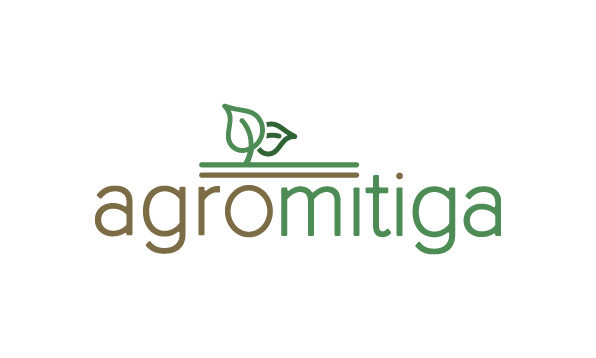
Coordinator: Spanish Association of Conservation Agriculture Living Soils (AEACSV)
Partners: Asaja Sevilla, the Ministry of Agriculture, Livestock, Fisheries and Sustainable Development, the European Conservation Agriculture Federation (ECAF), the Andalusian Institute of Agricultural Research and Training (IFAPA), University of Córdoba
Duration: from September 2018 to December 2022
Development of climate change mitigation strategies through carbon-smart agriculture
The LIFE Agromitiga project will promote a low-carbon agricultural system aimed at enhancing the mitigative capacity of soil as a carbon sink. The project will also assess the impact of different Conservation Agriculture practices; and will quantify the mitigative capacity of soil management systems in the Mediterranean Basin (Greece, Italy, Portugal and Spain), in both herbaceous and perennial crops.
The project focuses on the development of a method to calculate the carbon footprint at different crop cultivation stages, in line with international standards, and a tool to quantify the increase of carbon in soils due to better soil management practices. This will significantly improve knowledge about the carbon content of agricultural soils and demonstrate that Conservation Agriculture can reduce GHG emissions in the Mediterranean Basin. Furthermore, the project will promote the implementation of soil management systems that mitigate climate change through training and awareness raising.
LIFE DOP (Demonstrative mOdel of circular economy Process in a high quality dairy industry) is an Italian project – co-funded by the LIFE Programme of the European Union- based in Mantua District and aims to demonstrate a new production model for Grana Padano PDO (Protected Designation of Origin) and Parmigiano-Reggiano PDO, able to reduce the environmental impacts of production and GHG emission.
As literature (IPCC 2006) and experience indicate, a relevant area of the emission of climate-changing gases in milk production is the management of slurry and nutrients, and these are the key areas in which it is important to invest for reducing impacts.
LIFE DOP cornerstone for the reduction of emissions are: the correct management of slurry (anaerobic digestion and production of renewable energy), the efficient use of digestate in the field by injection and micro-fertigation techniques, the production of renewable fertilizers for export to non-intensive livestock areas, the production of low impact feed (minimum processing techniques) and finally the optimization of the management of stables and of dairy processing.
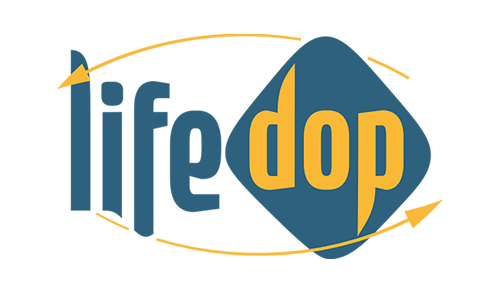
Coordinator: Consorzio Latterie Virgilio
Partners: Università degli Studi di Milano, Associazione Mantovana Allevatori, Consorzio Gourm.it, Cooperativa Agricola San Lorenzo, Consorzio Agrario del Nordest
Duration: from September 2016 to March 2021
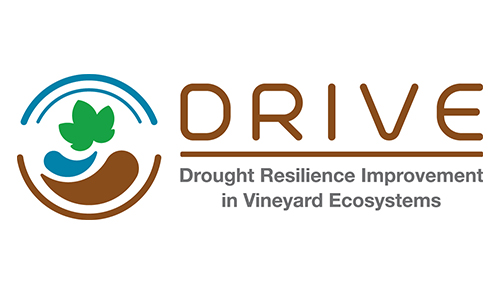
Coordinator: Università Cattolica del Sacro Cuore (Di.Pro.Ve.S.)
Partners: Università di Pavia, Università di Milano, ART-ER, Cantina di Vicobarone, Terre d’Oltrepò
Duration: from 01.01.2021 to 31.12.2023
DRIVE LIFE – Drought Resilience Improvement in Vineyard Ecosystems
LIFE19 ENV/IT/000035 – LIFE Environment and Resource Efficiency
The aim of the project is to study the effectiveness of innovative soil and canopy management techniques in vineyard ecosystems that can improve their resilience to the effects of climate change and in particular to those associated with drought. In addition to verifying the agronomic value of the management models proposed, the project also aims to assess the impact of the activities carried out on ecosystem services. The demonstration activities shall be validated and supported through the development of a monitoring system, available as an app (PocketDRIVE) for mobile devices, to help winegrowers estimate the water consumption of their vineyards and identify potential critical periods.
Throughout the duration of the project, local and international players in the wine sector will be involved to encourage the carry-over of results obtained beyond the area of study.
The demonstration activities are located in the “Colli Piacentini” and “Oltrepò Pavese” districts and carried out using innovative soil and canopy management techniques.
The project aims to recover and maintain about 6 hectares of terraces with dry-stone walls and the drainage channels in the Cinque Terre National Park, in order to improve the resilience of the territory to weather phenomena getting more extreme by climate change. The actions for the recovery of terraces will also be implemented by adopting some innovative soil reinforcement methodologies in the pilot area, identified within the municipality of Riomaggiore (in the so-called “amphitheatre” of Manarola) thanks also to the detailed preparatory work carried out by the Manarola Foundation, which is active in the area as an intermediary between the owners of abandoned lands and local farmers interested in renting them in exchange for their long-term maintenance. The actions to be implemented also include in-depth scientific and technological monitoring of the areas through the installation of some multi-parameter monitoring stations, the preparation of Climate Change Adaptation Plans, the study of further intervention areas in the Park for a potential replication of the intervention, and the transfer of the experience acquired in other EU contexts such as the Parc del Garraf (Province of Barcelona). The project also has an important social aspect: the training of workers specialised in the laying and maintenance of dry-stone walls, through didactic courses “in the field” also addressed to people in disadvantaged conditions (unemployed, migrants, etc.), to ensure that this knowledge is preserved and passed on.
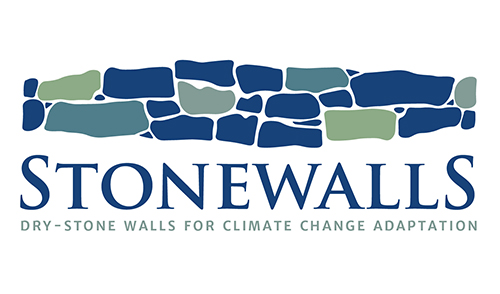
Coordinator: Cinque Terre National Park
Partners: Dipartimento di Scienze della Terra, dell’Ambiente e della Vita (DISTAV – Università degli Studi di Genova); ITRB Group; Legambiente Onlus; Fondazione Manarola Cinqueterre Onlus; Barcelona Provincial Council (DIBA – Diputació de Barcelona, Àrea d’Infraestructures i Espais Naturals)
Duration: from July 2019 to September 2024

With the contribution of LIFE, a European Union financial instrument
LIFE19 CCA/IT/001257

Prima di procedere con l’invio della richiesta Le chiediamo di prendere visione dell’ Informativa Privacy

Before proceeding with sending your request, we ask you to read the Privacy Policy